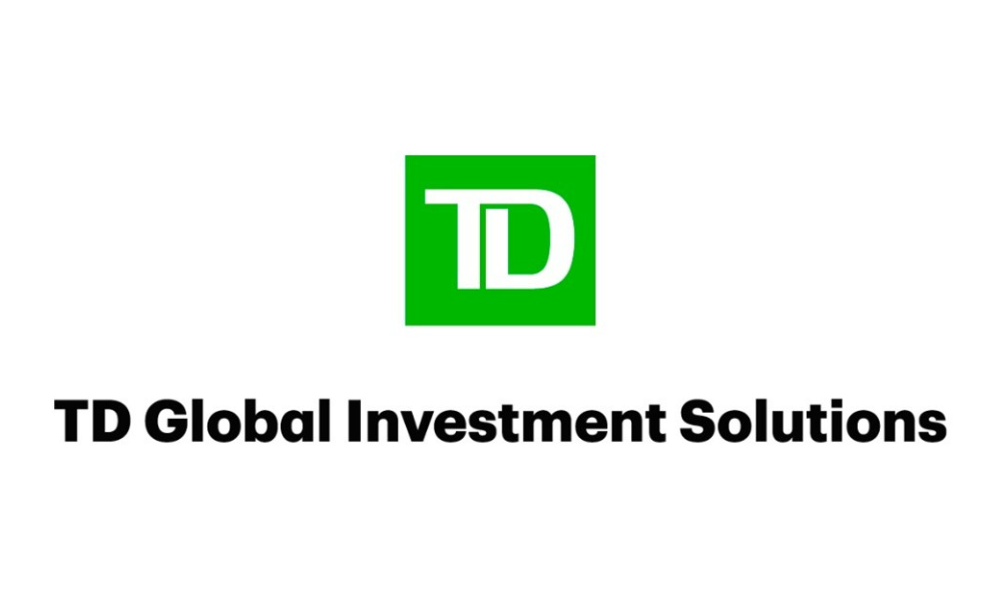After five years of volatility, TD Asset Management Inc. (TDAM) believes real estate is back in its sweet spot -- offering equity-like returns with bond-like stability

Real estate may have weathered a challenging five years, but Andrew Croll and Luke Schmidt of TD Asset Management Inc. believe its best days are just ahead. “It’s an exciting time right now for real estate,” says Croll, Managing Director, Head of Global Real Estate Investments, TD Asset Management Inc. “For the first time in years, return expectations for a diversified real estate portfolio are back in line with equity-like returns - but with bond-like volatility.”
In other words, real estate is regaining its place as a steady, reliable performer. While equity markets have delivered tremendous gains, valuations there are stretched.
Alongside Croll, Luke Schmidt, Vice President, TD Asset Management Inc., points to the tangible appeal of the asset class. “Unlike equities, where the market leaders of 20 or 30 years ago are largely unrecognizable today, many of the same buildings we invested in decades ago are still creating value,” he says. “The key is keeping them relevant.”
Reset, rebalance, and rebuild confidence
Real estate has undergone its own recalibration. The asset class has emerged from a challenging period marked by the pandemic shock, interest rate hikes, and evolving demand across sectors. But the team sees these dislocations as having created a healthier foundation for long-term investing.
“We’ve just gone through a significant valuation adjustment,” Croll explains. “Cap rates have moved from an average of 5.5% to closer to 7% in Canada, and income yields have adjusted upwards. Compared to fixed income or equities, the income story for real estate today is compelling.”
Looking at the last 30 years, Croll finds income should account for about 80% of returns from a diversified core real estate portfolio. But for much of the past decade, capital appreciation did more of the heavy lifting, driven by falling interest rates and cheap debt.
Today, those days are over - but in a good way. With higher yields and more stable fundamentals, Croll believes real estate is poised to outperform many large-cap equity markets over the next five to ten years, with much less volatility, which is aligned with TDAM's most recent Long-term Asset Class Assumptions
For TDAM, this isn’t a time to reinvent the strategy but rather to stay true to what’s worked over its 37-year track record in Canadian real estate.
“We’ve always focused on high-quality assets, broad diversification, and strong relationships,” says Croll. That consistency shows in their flagship real estate fund, where no single property makes up more than 3% of the portfolio. “This ensures no single asset can shock the portfolio.”
Schmidt highlights the portfolio’s evolution as a key strength. “We’ve been early movers in both industrial and multi-unit residential,” he says. “In the mid-2000s, we built up our industrial exposure. By 2020, we had a 30% weight in industrial versus the index’s 10%. Similarly, around 2010 we began increasing our multi-unit residential holdings before the sector became more widely embraced as it is today.”
But it’s not just about chasing opportunity. TDAM has avoided the pitfalls of overexposure by maintaining discipline, especially as some competitors, for example, have pushed industrial allocations above 40% during the pandemic boom.
Stability returning, with selective bright spots
TD Asset Management sees reasons for cautious optimism across several key real estate sectors.
The industrial sector, which had been a standout performer during the pandemic-driven e-commerce surge, is undergoing a necessary period of moderation. Rental growth has cooled, and absorption has turned negative, as tenants consolidate space. However, strong supply discipline by developers has limited overbuilding, creating conditions for a more balanced and healthier market ahead.
Multi-unit residential continues to show resilience, though short-term challenges remain. Recent changes in immigration policy and affordability pressures in key markets like Toronto are expected to slow demand in the near term. Nonetheless, the long-term fundamentals remain intact, supported by structural housing undersupply and an eventual normalization of population growth to more sustainable, but still relatively high growth rates. Through the adjustment period, homeownership affordability challenges, spurred by limited new supply, will continue to drive rental demand and steady cashflows for apartment owners.
Office and retail, both of which have faced persistent headwinds, are beginning to show signs of recovery. Office leasing activity turned positive in 2024 for the first time since the pandemic, as many organizations stabilize their space needs. With little new supply in the pipeline, fundamentals are expected to gradually strengthen.
Retail, often written off as the casualty of e-commerce, has stabilized. “Bricks-and-mortar stores have found their place in an omnichannel world,” says Schmidt. “Retailers are expanding, stores are serving as fulfillment hubs, and there’s been almost no new retail development for years. That supply constraint is working in landlords’ favor.”
One of the defining features of the current market is what Croll calls a “capital recession.” Institutional investors, cautious amid valuation uncertainty, have largely remained on the sidelines. But as valuations stabilize and interest rates show signs of peaking, capital is expected to return.
“2024 was a year of progress,” says Croll. “Occupancies went up across our portfolio, including nearly two million square feet of leasing in office. Income growth was high single-digit in most sectors. As capital re-engages, we’re well positioned to capture opportunity.”
Positioning for the next five years
Looking ahead to 2030, TDAM believes real estate offers one of the most attractive risk-adjusted return profiles across asset classes. The resetting of valuations, paired with stable income yields, and limited new supply points to a favourable backdrop for long-term investors.
“We expect diversified real estate to deliver high single-digit returns over the next five to ten years,” Croll says. “And because income is such a big part of the story now, those returns should come with less volatility.”
For institutional investors seeking stability in uncertain times, TDAM’s real estate portfolio offers a compelling case. “We’re not just buying generic buildings,” says Schmidt. “We’re investing in strategic spaces where people live, work, and shop, resulting in robust leasing demand and predictable income, backed by high-quality assets, for investment portfolios.”
For more information, visit here.
TD Global Investment Solutions represents TD Asset Management Inc. (“TDAM”) and Epoch Investment Partners, Inc. (“TD Epoch”). TDAM and TD Epoch are affiliates and wholly-owned subsidiaries of The Toronto-Dominion Bank.




